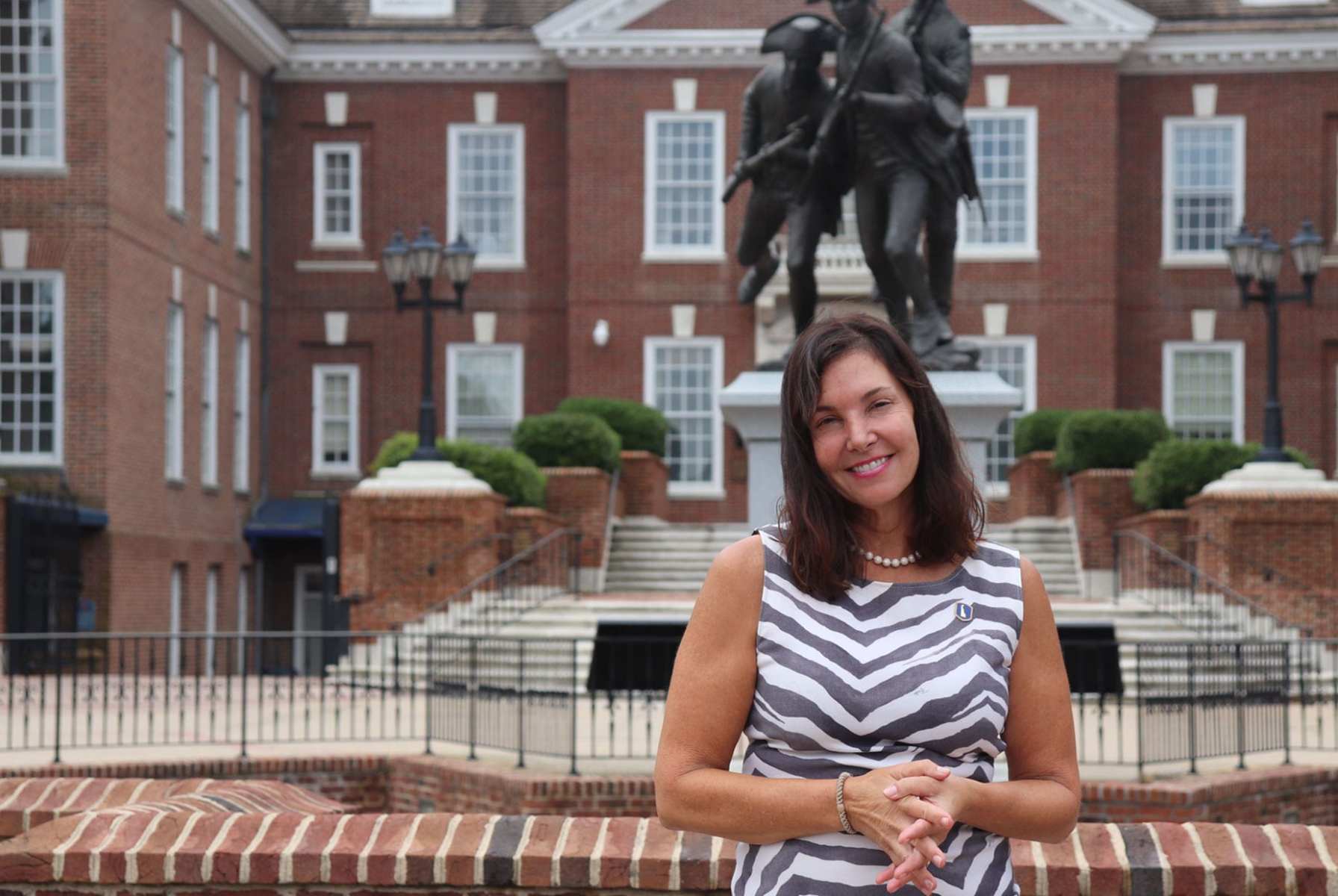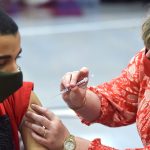Kathy McGuiness was so excited that she couldn’t stay in her seat.
It was summer 2019, and McGuiness, the state auditor of Delaware, was at one of her first work conferences since being elected the previous year. During a workshop on data analytics, she kept gradually moving up the rows of seats to take better notes.
“I remember them telling me about these scripts and bots and how you can run them for repetitive needs … I started thinking, ‘Oh my gosh, I need a bot. This is amazing,’” she said. “I get excited over these things. That means it’s more efficient.”
Many people don’t know how computer scripts work and could assume all bots are bad bots (they’re not), but for state auditors like McGuiness, these are tools used for one of the most misunderstood jobs in government. State auditors, who at times have had the public reduce the scope of their work to watching spreadsheets, often have broad power to investigate claims of fraud and mismanagement.
The job has heightened in importance amid the coronavirus pandemic. There have been more than 180,000 coronavirus-related deaths in the United States, and state and public health officials have struggled to collect and share clear data on the pandemic. State auditors are among those tracking some of the incoming information about cases, and McGuiness, one of the few women state auditors in the country, is also trying to figure out how to share best practices that can benefit others in her field.
McGuiness was thinking about efficiency when she came up with an idea to help tackle COVID-19, not just in Delaware but around the country: standardizing a set of questions for state auditors everywhere to collect better information about the virus.
In July, McGuiness announced that she and a task force of four other state auditors — from Florida, Mississippi, Ohio and Pennsylvania — had developed a template of COVID-19 data tracking questions for other states to use.
“I think now more than ever, Americans are looking for trusted and accurate information,” McGuiness said. “And I think there’s a huge value in information sharing.”
In Texas, officials have acknowledged a backlog of coronavirus test results. There have been data glitches reported on Iowa’s main public health website. And in North Carolina, officials have had to address information gaps in some of their records on COVID-19 cases.
McGuiness believes sharing consistent data among officials in different parts of the country will be critical to better responding to a virus that spreads beyond state lines. States “seem to be operating as isolated islands,” McGuiness said, when “we’re all fighting the same fight.” Her efforts, she hopes, will improve communications between states.
“Why duplicate efforts? Why should 5, 10, 15, 20 other states take their time and resources and limited staff to try and get to the same endpoint?” McGuiness said.
The template, which is optional for state auditors to use, includes specific inquiries about how a state is collecting data about its coronavirus testing, its treatment of COVID-19 patients and how it’s monitoring cases.
Additional auditors have since pledged to participate. Officials in Colorado, Iowa, Louisiana, Michigan, Tennessee, the District of Columbia and Puerto Rico are either already using the template or plan to. Officials in three additional states are also participating, but McGuiness’ office did not identify them.
McGuiness holds weekly meetings with state auditors and their staff about the data collecting. The participating auditors expect to release individual reports, and McGuiness intends to release a separate report on the collective effort.
The 53-year-old Democrat acknowledges that there may be challenges to the data collecting. Some auditors may return with limited data points, which could complicate potential efforts to compare state responses. But McGuiness sees no downside to trying, especially as auditors release reports that could shed light on methods and procedures that may be useful elsewhere.
“You can’t go wrong … it’s a start,” she said. “There’s only a way to learn from each other.”
The role of state auditor is often a mystery, said Daryl Purpera, the state auditor of Louisiana and president of the National State Auditors Association. It’s a subdivision of the National Association of State Auditors, Comptrollers and Treasurers.
“To a certain extent, citizens and legislators often believe the state auditors are bean counters,” Purpera said. “That they’re just looking at the numbers and it’s really not important. But I would completely say state auditors are the eyes and ears of the legislature, and these agencies, and these departments and local governments.”
McGuiness and other state auditors often have subpoena powers to conduct reviews and special investigations. In Missouri, State Auditor Nicole Galloway in 2017 uncovered $90 million in inappropriate lab billings by a hospital. At the time it was considered the largest alleged fraud scheme investigated by the auditor’s office, and it led to federal indictments in a multi-state, $1.4 billion investigation. Galloway, a Democrat, is now running for governor of the state.
More recently, as states receive a surge of federal funding to respond to the virus, auditors are reviewing the response of state agencies to the virus, as well as tracking how money is spent.
In Hawaii, State Auditor Les Kondo last month released a report calling on its education department to release timely and complete data on COVID-19 cases in public schools. Ohio’s State Auditor Keith Faber is seeking public input on coronavirus testing in the state as he checks the accuracy of available data. And in California, State Auditor Elaine Howle announced last month that she would monitor an estimated $71 billion in new coronavirus-related federal money for the state, warning of a “high risk” for waste, fraud and abuse because of the state’s history of mismanagement.
Purpera said many auditors will play an important role in monitoring how states spend such allotted federal money.
“They’re the watchdog of state funds,” Purpera said. “They’re looking at the control processes and procedures, and how those funds are being spent on a daily basis.”
Shad White, the state auditor in Mississippi, maintains a page for the public to track how the state is spending $1.25 billion in federal money tied to COVID-19.
“I think the reason that we are more relevant now, in the age of this pandemic, is that frankly just more money is being spent,” he said, adding: “When you got that amount of money flying around, not only does the temptation for fraud and illegal activity go up, but the opportunity for fraud and illegal activity goes up, too.”
White, a Republican, added that there is a spirit of bipartisanship among state auditors.
“If your real passion is transparency and stopping corruption, stopping waste? Yeah, this is one of the best jobs you can have,” he said. “And so if you get a bunch of people who all care about those things in a room, their opinions about other issues can melt away a little bit.”
McGuiness agrees. “Auditors, we really shouldn’t be political. We should just deal with the data.”
McGuiness is one of only 10 elected female state auditors in the country, according to the latest tally by the Center for American Women and Politics at Rutgers University. An additional handful are in the role through appointment, and some hold different titles but conduct the same work as an auditor. Throughout history, there have been only 54 elected female state auditors. The bulk have identified themselves as White.
There are 90 women in statewide elective executive offices in the country, out of 311 available positions. Kelly Dittmar, assistant research professor at CAWP, said there are limitations to the data since some jobs around the country are appointments. She said it’s important to consider statewide office in the discussion over gender parity in politics.
“It’s important that when we examine the influence of women in statewide executive offices, that we apply sort of the same lens and questions about why it matters to have more equal gender and racial representation in these roles,” she said.
McGuiness won an open seat for state auditor — in Delaware it’s called auditor of accounts — in 2018. It was previously held by a Republican man who was in the role for nearly 30 years.
The former city commissioner said she went to work immediately after she entered office, filling 20 funded positions. She simplified an audit reporting template (a one-pager that she calls the “the hot sheet”). She launched an app for the public to more easily report suspected fraud. She also started attending more events around the state to add visibility to the job.
“This office needed a strong female with a fresh set of eyes and perspective,” she said. “Who wasn’t afraid. Who’s had years of being yelled at or chastised or ignored or left out of the room on purpose … to be able to come in and go, ‘This office is more important now than ever. Because this office touches every form of government in the state, and every agency.”






